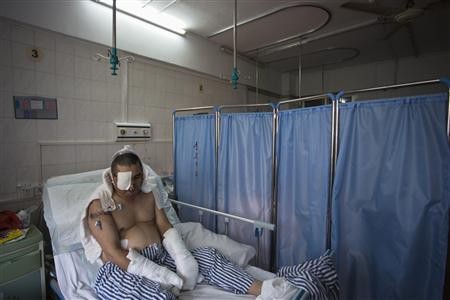After Chinese scientific researchers captured the attention of the world's media outlets in 2013 with the steel "rocket heart" of their experimental sheep subject, Tianjiu, a more appropriate update for the nation's surgical community could not have occurred, with the arrival of the auspicious sheep year on Thursday.
The ventricular assist device (VAD) that was first implanted in a group of sheep in 2009 continues to work well in other test subjects after reporters observed Tianjiu at the 62-day mark nearly 24 months ago.
The clinical scientists from the partnership, consisting of the No. 18 Institute of China Academy of Launch Vehicle Technology and the TEDA International Cardiovascular Hospital, informed news outlets on Tuesday that clinical tests form the next stage of the historic process.
VAD became known as "Rocket Heart" after the researchers revealed that they had used magnetic suspension and hydro-dynamic bearings to construct the battery-operated vital organ.
As it was part of a test group, the "celebrity" sheep's full name was "Tanjiu 1," and the animal was implanted with the third-generation VAD on March 14, 2013. "Tanjiu 1" eventually survived for 120 days, setting a new record for the third-generation model of the VAD, and facilitating the next round of modifications for the revolutionary device that were implemented last year.
Since Dec. 23, 2014, further VAD implants have led to the introduction of "Tianjiu 2", "Tianjiu 3" and "Tianjiu 4"--all three sheep remain healthy at the time of reporting.
Of greater importance than the Chinese zodiac is the temporal matter of human need, as approximately 16 million Chinese nationals suffer life-threatening cardiovascular diseases.
Furthermore, the transplant waiting list for all human organs in China has been considered untenable for a long period of time.



























